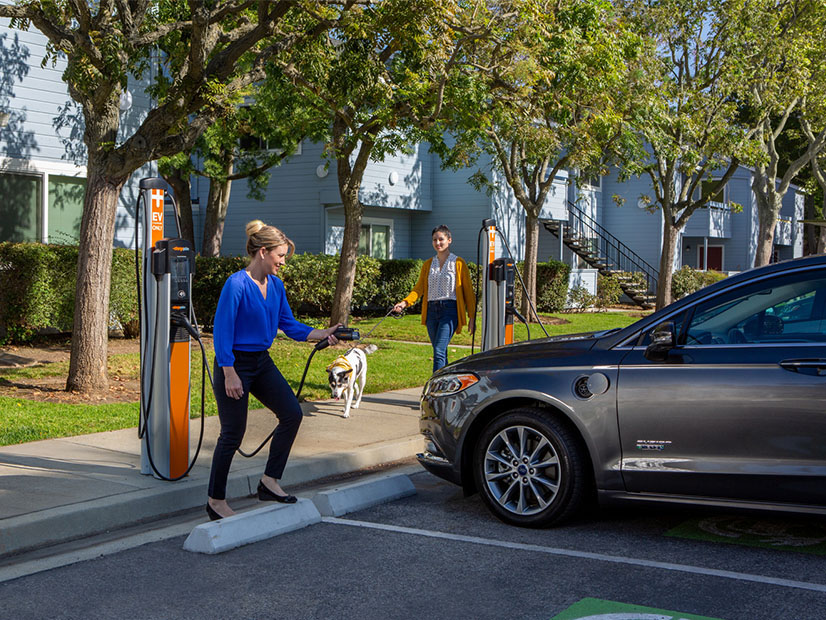New Jersey Gov. Phil Murphy signed bills Tuesday tightening energy efficiency standards on more than a dozen household and commercial appliances and limiting rates for electric vehicle charging stations in residential neighborhoods.
Supporters of the efficiency standards bill, A5160/S3324, said the measure — the first update in 15 years — would save water and energy. NJPIRG, a public interest advocacy group, said the reduced greenhouse gas emissions would be equal to removing 72,000 vehicles from the road.
“Common appliances like lamps and fans shouldn’t needlessly waste energy, and this new law will make sure they don’t,” said Rachel Vresilovic, associate for NJPIRG.
The 17 appliances covered by the new law, which takes effect immediately, include showerheads, which the law prevents from exceeding a flow of two gallons a minute. The law also requires toilets and urinals to meet federal water consumption standards and a waste extraction test set by the American Society of Mechanical Engineers. Air purifiers, commercial fryers and commercial ovens, water coolers and steam cookers must meet their respective Energy Star program requirements.
A second bill signed by Murphy on Tuesday, A-2360/S-3285, requires that electric utilities set the cost of electricity for EV charging stations outside of residential units at a level that is no higher than the rates for home chargers. Sponsors of the bill said it aims to ensure that real estate developments don’t charge residents the higher, commercial rate for electricity rather than the residential rate.
Three bill sponsors, Assembly members Annette Chaparro, Robert Karabinchak and Gordon Johnson, said the bill would remove the confusion that can arise when a residential development contains a charging station that levies a commercial rate for the electricity and another charger nearby that charges a residential rate.
“Families who have electric cars should have access to more affordable charging rates and not have to worry about using a higher priced charging station outside their home,” the Democrat lawmakers said when the Assembly backed the bill on Jan. 10. “Residents should not be wary about owning an electric car due to potential confusion at their residential charging stations. It is clear, if a person is at their own residence, they should pay a residential rate”
Cutting Transportation Emissions
The legislation was among 100 bills signed by Murphy on the day of his inauguration for a second, four-year term after a narrower than expected victory over Republican Jack Ciattarelli. In his first term, the governor staked out an aggressive agenda to reduce fossil fuel use, with goals to cut greenhouse gas emission levels to 50% below 2006 levels by 2030, and 80% below 2006 levels by 2050.
Although the policies have earned Murphy the support of environmentalists, he hardly mentioned climate change in his inauguration speech, except to note the economic development spurred by initiatives such as the state’s offshore wind projects.
Henry Gajda, public policy director for the League of Conservation Voters, called the energy efficiency bill “momentous” when it received Assembly approval with a 52-25 vote on Jan. 10. “The cleanest and cheapest energy is the energy we don’t use.”
A key element of Murphy’s strategy is to cut emissions from transportation, which accounts for about 40% of the state’s carbon emissions. The measures include offering subsidies for the purchase of electric trucks and cars, and a mandate that EV vehicles account for a steadily increasing proportion of trucks sold in the state. The state is also seeking to encourage the transition to EVs by increasing the number of charging stations through subsidies and rules to encourage private investment.(See NJ’s EV Charger Rules Face Scrutiny.)
Bill sponsor Sen. Linda Greenstein, commenting after the EV-charging bill secured the support of the Senate Environment and Energy Committee in December, said it would help the state meet its goal of 2 million EVs on the road by 2035.
“By decreasing the price of charging for residents living in developments, this bill will aid in removing some key barriers that currently exist when purchasing and using electric vehicles,” she said.



